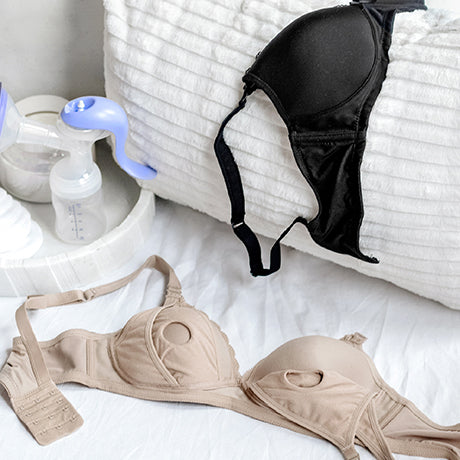Does my Baby Need Therapy
Developmental milestones are guidelines to help parents, caregivers and doctors determine if a child is advancing towards physical, mental and psychological achievements appropriate for his age. Usually milestones are set with an age range in mind since we know that all babies progress differently. This range may encompass a few months or even a few years, depending on the milestone. Childhood therapies including physical therapy, occupational therapy and speech therapy may be recommended for children who are not reaching milestones within the typical age range or are displaying abnormal tendencies, habits or behavior.
Many parents fret when their baby does not reach a milestone as soon as he enters the appropriate age range. Sometimes babies are just not ready for that skill. Sometimes they need a little encouragement and practice. Other times, there may be a developmental delay that can be assisted by therapy. Today we are exploring the three most common types of therapies in early childhood.
Physical Therapy
 Physical therapy is the most common type of therapy for infants as the other skills covered in early childhood therapies are not addressed until children are older. Physical milestones are the first to emerge and therefore the first problems that may be noticed. Physical therapy is recommended for babies who are not meeting their physical developmental milestones such as rolling over, kicking and reaching for objects, sitting up, pulling up and bearing weight on their own legs and eventually walking. Many parents are alarmed when their babies don’t crawl, but crawling is not a developmental milestone. Some babies never crawl and simply go straight into walking late in the first year or early in their second year.
Physical therapy is the most common type of therapy for infants as the other skills covered in early childhood therapies are not addressed until children are older. Physical milestones are the first to emerge and therefore the first problems that may be noticed. Physical therapy is recommended for babies who are not meeting their physical developmental milestones such as rolling over, kicking and reaching for objects, sitting up, pulling up and bearing weight on their own legs and eventually walking. Many parents are alarmed when their babies don’t crawl, but crawling is not a developmental milestone. Some babies never crawl and simply go straight into walking late in the first year or early in their second year.
Physical therapists work on building strength so that muscles, ligaments and joints will be able to support normal physical developmental milestones. They also work on balance, flexibility and coordination. For babies and toddlers, a physical therapy session may include the therapists moving the baby’s body for him to eventually encourage independent movements, adaptive games, obstacle courses, mimicking movements and even aquatic therapy. Physical therapy is not designed to improve the athleticism of a child, but rather allow children to perform daily tasks within a normal range.
Occupational Therapy
Occupational therapy works to improve a child’s physical, cognitive and sensory motor skills. You have probably heard of fine motor skills and gross motor skills. Gross motor skills are big movements like walking, hopping and jumping that would be covered in physical therapy. Occupational therapy focuses on smaller movements such as hand precision that will eventually be required for fastening a button or writing, as well as sensory input and processing and learning disorders. This type of therapy involves psychological, social and environmental evaluation because each of these play a role in a child’s sensory processing.
Occupational therapy is usually not recommended for children until the late twos, threes or fours as that is when the deficiencies in skills covered in therapy will be discovered. Occupational therapists work on fine motor skills such as grasping toys, utensils, crayons and balls and will help improve hand-eye coordination, focus and social skills. They also work on behavioral concerns to help children function appropriately in a variety of situations.
Speech Therapy
Speech therapy helps children work on language development, articulation, fluency and voice control. While not every child in speech therapy has a speech disorder, there are two categories or speech disorders: receptive and expressive. Children with receptive disorders have trouble understanding and processing language. Expressive disorders encompass the inability to produce language due to lack of vocabulary and difficulty expressing words in a socially appropriate way.
Speech pathologists evaluate children to rule out physical complications in the mouth that may prohibit proper speech. Then they work through a play-based therapy by modeling sounds for the child to repeat. They often us books, games and pictures to help stimulate language, motivate discussion and give the opportunity for lots of communication through play. Usually speech therapy is not recommended until at least age three, and typically speech therapy is reserved for children four and older. Before this age, mispronunciations and missing letter sounds are completely normal.
If you are concerned about your baby’s development, consult your pediatrician. Your doctor may recommend an evaluation and then you can decide if therapy is right for your child. Early intervention is always the best way to resolve minor problems or to help your child find a path to continual improvement.
The post Does my Baby Need Therapy appeared first on Leading Lady.







